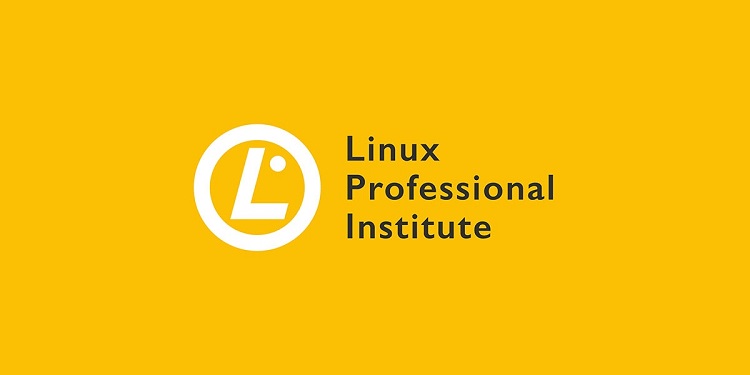In today's fast-paced world, where organizations are adopting agile and DevOps methodologies to develop and deploy applications, virtualization and containerization technologies have become essential for managing and deploying applications efficiently. The Linux Professional Institute (LPI) offers a certification program called LPIC-3, which includes a specialization in virtualization and containerization technologies. This certification is designed for professionals who want to demonstrate their expertise in these technologies and advance their careers in the IT industry.
What is the LPIC-3 certification?
The LPIC-3 certification is a professional-level certification program offered by the Linux Professional Institute. It is designed to validate the advanced-level Linux administration skills of IT professionals. This certification program consists of three specialty exams, and one of them is the Virtualization and Containerization specialty.
LPIC-3 Virtualization and Containerization specialty exam
The LPIC-3 Virtualization and Containerization specialty exam is designed to test the skills and knowledge of IT professionals in managing and deploying virtualized and containerized applications using Linux technologies. The exam covers the following topics:
1. Virtualization
The Virtualization section of the exam covers the following topics:
◉ Designing, implementing, and managing KVM virtualization
◉ Configuring, managing, and deploying Xen virtualization
◉ Managing and deploying other virtualization technologies such as QEMU, VirtualBox, and VMware
2. Containerization
The Containerization section of the exam covers the following topics:
◉ Designing, implementing, and managing Docker containers
◉ Configuring and deploying container orchestration technologies such as Kubernetes and Mesos
◉ Managing and deploying other containerization technologies such as LXC and rkt
3. Advanced Virtualization and Containerization
The Advanced Virtualization and Containerization section of the exam covers the following topics:
◉ Designing, implementing, and managing virtualized and containerized networks
◉ Configuring and managing storage for virtualized and containerized applications
◉ Implementing and managing high-availability and disaster recovery solutions for virtualized and containerized applications
Why should you get LPIC-3 Virtualization and Containerization certification?
The LPIC-3 Virtualization and Containerization certification is designed for IT professionals who want to demonstrate their advanced-level skills and knowledge in managing and deploying virtualized and containerized applications using Linux technologies. This certification is recognized globally and is highly valued by employers in the IT industry. Here are some reasons why you should get LPIC-3 Virtualization and Containerization certification:
◉ Career advancement: The LPIC-3 Virtualization and Containerization certification demonstrates that you have advanced-level skills and knowledge in managing and deploying virtualized and containerized applications using Linux technologies, which can help you advance your career in the IT industry.
◉ Salary increment: According to a survey conducted by Global Knowledge, professionals who have LPIC-3 certification earn an average of $111,890 per year, which is higher than the average salary for IT professionals without certification.
◉ Global recognition: The LPIC-3 certification is recognized globally and is highly valued by employers in the IT industry. This certification can help you get a job in any part of the world where Linux technologies are used.
How to prepare for LPIC-3 Virtualization and Containerization exam?
To prepare for the LPIC-3 Virtualization and Containerization exam, you need to have a strong understanding of Linux technologies and virtualization and containerization concepts. Here are some tips for preparing for the exam:
◉ Review the LPIC-3 Virtualization and Containerization Exam Objectives: The exam objectives provide a detailed outline of the topics covered in the exam. Make sure you review them thoroughly.
◉ Study Linux virtualization and containerization technologies: Study the technologies covered in the exam, such as KVM, Xen, Docker, Kubernetes, Mesos, LXC, and rkt. Understand how they work and how to configure and manage them.
◉ Practice: Practice is essential for passing the exam. Use virtualization and containerization technologies on a Linux system to get hands-on experience.
◉ Take practice tests: Taking practice tests can help you identify your weaknesses and areas that need improvement. Many websites offer practice tests for LPIC-3 exams.
◉ Enroll in training courses: There are many online and in-person training courses available for LPIC-3 certification. These courses can help you prepare for the exam by providing structured learning and hands-on practice.
Conclusion
The LPIC-3 Virtualization and Containerization certification is an excellent way to demonstrate your expertise in managing and deploying virtualized and containerized applications using Linux technologies. This certification is recognized globally and is highly valued by employers in the IT industry. By getting this certification, you can advance your career and increase your earning potential.
Read More: 305-300: LPIC-3 Virtualization and Containerization




0 comments:
Post a Comment